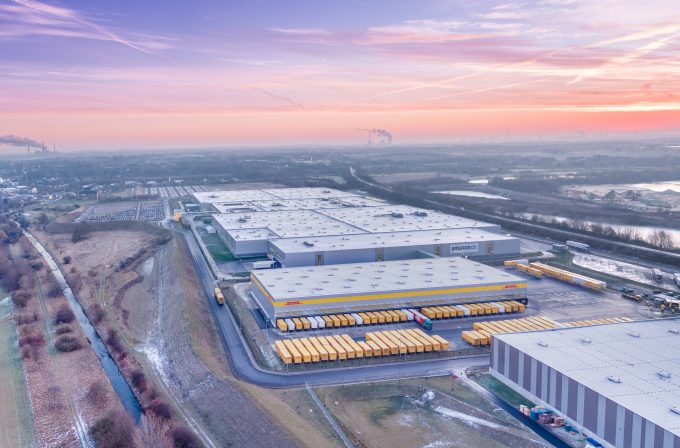Amazon: 2023 letter to shareholders
Published today, 11 April, the full letter can be downloaded here.

Amazon’s logistics arm is becoming an increasingly important source of revenue, accounting for $6.4bn in the first quarter of this year, up 34% year-on-year.
The company’s retail third-party seller services, or logistics, comprised 18% of total net sales for the quarter, up from 16% a year earlier.
But while worldwide shipping revenues rose 37% to $2.49bn, shipping costs were up 34% at $4.83bn, leaving net shipping costs at $1.88bn, a year-on-year rise of 30%.
However, Eric Sheridan, of UBS Securities, said net shipping costs had grown at their lowest rate for a couple of years.
“It looks like you’re starting to get some improvements there in terms of revenue over costs on the shipping.”
Brian Olsavsky, Amazon’s CFO, pointed out there were lower unit volumes in the first quarter, but said: “Generally, costs are going to be a combination – the headwinds are obviously going to be FBA (Fulfilment by Amazon) growth and shipping more products ourselves, and this expansion of our Prime programme and the demand for products from our Prime customers. And the demand has been great.
“So it’s going to be a big part of our cost structure, but it’s an investment we work hard to reduce rates [in], and we’re glad to spend it to support our Prime programme.”
Mr Olsavsky said Amazon’s air cargo arm was also doing well, while media reports suggest Amazon will work with DHL in its new Cincinnati hub.
“We now have 18 planes in service and we have announced rights to lease up to 40. So it’s gone very well.
“The ability to control shipments within our network has gone up, and we think the cost is very good. So on that front, it’s better control, better capacity control, especially search capacity, and also good costs.
“We have great relationships with third-party carriers,” he added. “We will continue to value all our partner relationships as we develop our own capability, particularly in intra-network.”
He also noted that FBA was growing.
“The other big influence is that the same trends are happening in international, with respect to FBA growth, and the fact that our Amazon fulfill network, or the units we shipped, are growing at a much faster clip than our paid unit growth.
“Last year, we said that was nearly 40% growth worldwide. So we’re making the investments in warehouses, fulfilment capacity and delivery capacity to handle that.”
Control appears to be a strong part of Amazon’s philosophy, and it is looking for network efficiencies between warehouses and customer deliveries, said Mr Olsavsky.
Amazon added 26 fulfilment centres to its portfolio last year, after it ran out of capacity in the last quarter of 2015 and amid strong demand, and has now developed much later cut-off times for deliveries.
“We’re seeing are network efficiencies, especially as we add things like sort centres. It’s a collaboration in the movement between warehouses and sort centres, and then to the end customer.
“The ability to have control through our sort centres has allowed us over the last few years to extend our cut-off times from 3pm in most cases till midnight. So, [it’s] greater control of our processes. If we do it cost effectively, it can also have favourable benefits both for our warehouse flow and for our customers and their ordering pattern.”
Amazon Robotics is being introduced to the warehouses, which gives them greater efficiency, he said.
Overall, Amazon recorded its eighth consecutive profitable quarter, with revenues rising 24% to $35.7bn. Operating income fell 6% to $1bn, but Q1 net income was up 41% to $724m.
Comment on this article
William
April 28, 2017 at 9:08 pmAmazon isn’t going to be working on behalf of DHL. The so-called “media reports” you rely on are based on absolutely-nothing. It doesn’t make sense for them to do it, and they are not going to do it. Right now, they have complete knowledge and control over what goes on their chartered aircraft; the moment you start carrying stuff you didn’t originate, it opens up all sorts of safety and operational issues. It’s not happening.
Alex Lennane
May 02, 2017 at 9:18 amAmazon confirmed last week that it would begin a partnership with DHL out of CVG when it moves, as early as this week. But you are right – there is no mention of Amazon flying for DHL, it’s more about DHL running some of Amazon’s ground operations. Read here: http://www.lloydsloadinglist.com/freight-directory/news/Amazon-confirms-US-air-hub-partnership-with-DHL/69208.htm#.WQhNz1PytcA
Sebastian
May 01, 2017 at 2:45 pmIn my opinion, I don’t think this will work out in near future, but definitely in the long run.